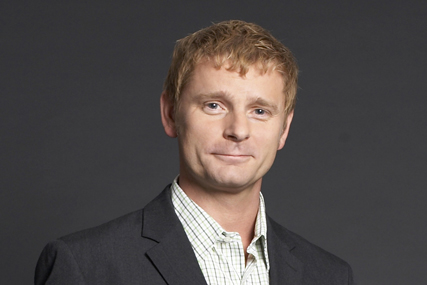In the heat of the dotcom boom, group buying was all the rage. Letsbuyit.com, Mobshop, Priceline and Mercata battled for a share of consumers' wallets, taking an old concept, buying clubs, and bringing to them the scaling, speed and frictionless communication of the internet.
It should have been a slam-dunk, but by the early 2000s these companies had largely deserted the consumer space, moving into b2b, technology or bankruptcy.
The web audience had not reached the scale needed to give critical mass to group buying and, for consumers, ecommerce was still unfamiliar territory; far from everyday.
Flash-forward to 2011, and group buying is back with a vengeance.
Groupon, perhaps the best-known company in this space, after spurning a $6bn buyout offer from Google, has just raised $950m (£610m) from a range of well-known growth and venture capital funds. Back in April, it raised $135m on a $1.2bn valuation, now it's valued at a reported $4.7bn.
So why is Groupon worth four times what it was just eight months ago? Is another bubble about to hit the dotcom sphere? And why did it turn down a higher valuation from Google?
The growth of this business is staggering. It's now in 500 markets in 35 countries, sending daily emails to 50m subscribers and attracting a reported £2bn in revenues on a roughly 50% gross margin. It's profitable, the market leader and already a scale business. Forbes magazine called it 'the fastest-growing company ever'.
Surely there are only so many tooth-whitening treatments and fish pedicures a girl can get? On its own, this growth isn't enough to justify the massive valuation, and certainly not to explain why it turned Google down. There are some much better reasons.
First, Groupon has no working-capital requirement. It pays merchants after it is paid by consumers, meaning no money is tied up in stock. With positive cash flow like this, customers are funding its growth; investment is used to accelerate this, acquiring similar businesses in other territories and expanding its sales force.
Second, it is the market leader. Most people don't want their mailbox packed with offers every day, but a couple is fine, even fun. Being market leader makes you the default sign-up for a virtuous circle of consumers and merchants; and group buying is an inherently scale business - the bigger you are, the more clout you have.
Third, it has lots of customers: 58,000 merchants have already done deals through Groupon, accelerating as the local sales force grows. Groupon's merchants aren't Wal-Mart and Best Buy, however. They are local stores, smalland medium-sized businesses which use it to attract new customers. None has the leverage on suppliers that the big retailers are used to, so, like Google, Groupon's customer base has stability from not being vulnerable to one big merchant pulling out.
Fourth, despite its scale, it is scratching the surface. There are 280,000 shops in the UK, of which half are independently owned; there are more than 2m in the US, and millions more worldwide. Groupon is able to not only sign millions more consumers (it's less than 10% the size of Facebook), its model is scalable to millions more merchants.
Lastly, it can defend itself. As the bandwagon rolls, more group-buying sites will emerge (there are already more than 200) servicing ever-smaller, specialist segments. Yet, as Facebook discovered, the bigger you are, the more you can self-segment, making offers relevant down to neighbourhood level and targeting more granular interests and groups to fend off the upstarts.
So, no bubble - this is a real business. The £4.7bn valuation might come to look like a bargain, and management right to hold out for something bigger than Google offered. Unlike 10 years ago, group buying's time has come.
- Andrew Walmsley is a digital pluralist
30 SECONDS ON ... GROUPON
- Founded in November 2008 and based in Chicago, Groupon offers exclusive daily deals with discounts of up to 90% to its users, and promises businesses a minimum number of customers in return.
- The deals cover attractions, spas, restaurants, services and events in more than 150 cities worldwide. The company claims to have saved its users more than $300m and generated millions in revenue for the businesses it features.
- Users who click the 'Buy now!' button receive a printable voucher to redeem against their deal only when the minimum required number of people have bought it.
- Recent Groupon London deals include 'Pay £1 to watch any film at Cineworld up to a value of £12' (26,962 sold at 92% off); '£9 for a £39 voucher to spend on any glasses at Glasses Direct' (5043 sold at 77% off); and '£28 instead of £147 for a choice of any three out of eight beauty treatments at O Spa London' (3456 sold at 81% off).


